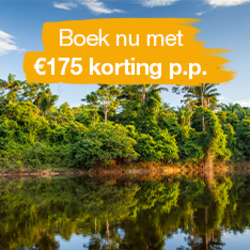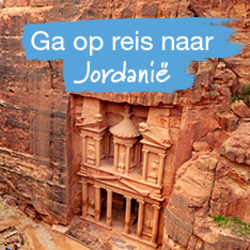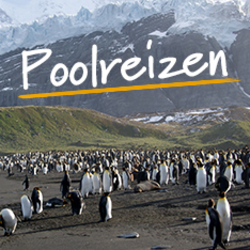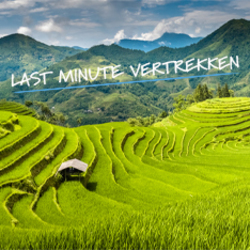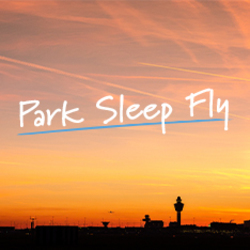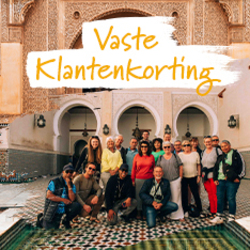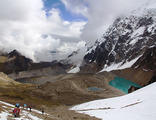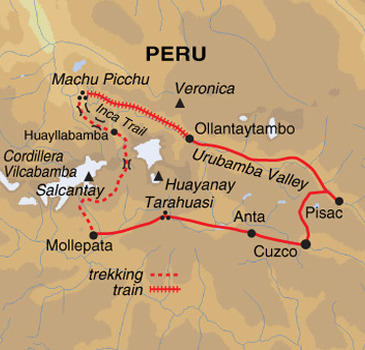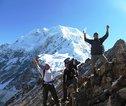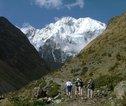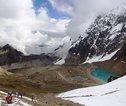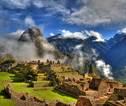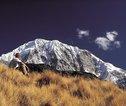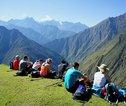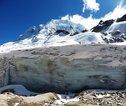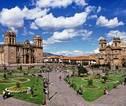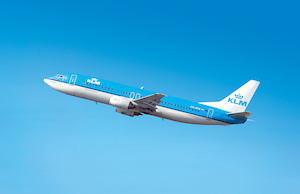Profiteer t/m 12 mei
BekijkActivities
- Walking & Trekking
- Point-to-Point
- — Enjoy a remote full-service camping trek through the beautiful Vilcabamba range — Connect the Salkantay Trail and classic Inca Trail for the ultimate inca trail trek — Marvel at Mount Salkantay and its glaciers — Experience two unique visits to Machu Picchu for photos and fully guided exploration — Spend four nights in Cuzco, the old Inca capital — Explore the fortresses and markets of the Sacred Valley
Food
-
1
Start Cuzco (3400m); afternoon city tour.
The trip starts in Cuzco (3400m) today. The group flights usually arrive late morning. The Inca capital - though small enough to be easily manageable - is among the most attractive cities in South America, with much of the centre comprising colonial-era buildings with Inca foundations, and it is full of interesting museums, churches and pre-Columbian sites. We will have a short walking tour of the city including a visit to the Qoricancha Sun Temple.It is recommended to take it easy upon arrival into Cuzco and to drink plenty of water to allow your body time to acclimatise to the altitude (3,400m).There will be a welcome briefing in the hotel lobby this evening.Hotel Koyllur / Warari (or similar)
-
1
Start Cuzco; afternoon city tour
The trip starts in Cuzco. The Inca capital, small enough to be easily manageable, is among the most attractive cities in South America, with much of the centre comprising Colonial-era buildings with Inca foundations. It is also full of interesting museums, churches and pre-Columbian sites. We have a short walking tour of the city, including a visit to the Qoricancha Sun Temple. Take it easy upon arrival into Cuzco and drink plenty of water to allow your body time to acclimatise to the altitude (11,155ft/3,400m). There is a welcome briefing in the hotel lobby this evening. Accommodation: MamaSara Hotel (or similar)
-
2
Full day walking tour of nearby ruins including Tambomachay and Sacsayhuaman.
The hills above Cuzco city are dotted with some of the most interesting Inca ruins. We drive to the highest, Tambomachay, and return on foot to Cuzco via Puca Pucara, Qenco and Sacsayhuaman: an easy acclimatisation walk to get used to the altitude. An open-air picnic lunch is included during the hike near the spectacular ruins.Hotel Koyllur / Warari (or similar)
-
2
Full-day walking tour of nearby ruins including Tambomachay and Sacsayhuaman
The hills above Cuzco are dotted with interesting Inca ruins. We drive to the highest, Tambomachay, and return on foot to Cuzco via Puca Pucara, Qenco and Sacsayhuaman: an easy walk to aid acclimatisation. An open-air picnic lunch is included during the hike near the spectacular ruins. Accommodation: MamaSara Hotel (or similar)
-
3
Free day in Cuzco
We have a free day in Cuzco to relax and further acclimatise before starting the tour. A range of optional activities and sightseeing excursions can be arranged, including visits to Inca and pre-Inca sites south of Cuzco, or walks in the hills surrounding the city but we recommend taking it relatively easy in preparation for the start of the trek tomorrow. Accommodation: Mamasara Hotel (or similar)
-
3
Free day in Cuzco.
Free day in Cuzco to relax and further acclimatise before starting the tour. A range of optional activities and sightseeing excursions can be arranged, including visits to Inca and pre-Inca sites south of Cuzco, or walks in the hills surrounding the city but we recommend taking it relatively easy in preparation for the start of the trek tomorrow.Hotel Koyllur / Warari (or similar)
-
4
Drive to Marcocasa; trek to camp at Soraypampa
A few hours’ drive, via the interesting Inca remains of Tarawasi (optional), takes us to the hill town of Mollepata where we make a brief stop, before continuing to Marcocasa, where we start our trek. We trek from here to our campsite near Soraypampa (12,830ft/3,910m) where we spend our first night under canvas. The total driving time is approximately four hours, and the walk takes around five to six hours of uphill and steady climbing along well-made tracks. Accommodation: Soraypampa Camp (full-service camping)
-
4
Drive to Marcocasa; trek to camp at Soraypampa.
A few hours drive via the interesting Inca remains of Tarawasi (optional) takes us high to the hill town of Mollepata (2980m) where we make a brief stop, before continuing on to Marcocsa (3515m), where we will start our trek. We trek from here to our campsite near of Soraypampa (3910m) where we spend our first night under canvas. The total driving time is approx. 4 hours, and the walk will take around 5-6 hours of uphill and steady climbing along well-made tracks.Full-service Camping
-
5
Optional walk to Humantay Lagoon and climb up to base of Salcantay.
Start your day with an optional 3 hour (return) walk to Humantay Lagoon to see the magnificent water mirror in the middle of the Andes. Return for an early lunch at the campsite of Soraypampa (3910m), and then continue our ascent towards the massive bulk of Salkantay (6271m) which soon dominates our view. We camp at around 4400m in the high grassy meadow of Ichu Pata, below the south face and glaciers of the impressive peak.Full-service Camping
-
5
Optional walk to Humantay Lagoon and climb up to base of Salkantay
The morning begins, as all do on our Inca Trail trek, with a hot drink delivered to your tent. Start your day with an optional three-hour return walk to Humantay Lagoon to see the magnificent water mirror in the middle of the Andes. Return for an early lunch at the campsite of Soraypampa and then continue our ascent towards Salkantay, the "Savage Mountain" in local Quechua language, which soon dominates our view. We camp at around 14,435ft (4,400m) in the high grassy meadow of Ichu Pata, below the south face and glaciers of the impressive peak. Accommodation: Salkantay Camp (full-service camping)
-
6
Cross Inca Chiriasqa Pass and follow glaciated valley to Pampa Cahuana.
The high point of the trek and this morning's goal is the Inca Chiriasqa pass at almost 5000m. Climbing more steeply now we walk close to the spectacular glaciers and ice walls of Nevado Salcantay. Passing through Pampa Japonesa, base camp for a Japanese mountaineering expedition, we finally top the pass and gain some excellent 360° panoramic views. Inca Chirisaqa means ‘the Inca fell ill from cold', and the exposed situation makes it easy to see why. Descending from the pass, we drop down into the upper reaches of a broad valley where Salcantay reappears in a new profile. After passing a huge ridge of terminal moraine, once the snout of the East Salcantay Glacier, the river suddenly becomes dead straight, canalised by the Incas centuries ago. We camp alongside the canal close to the hamlet of Pampa Cahuana (3870m).Full-service Camping
-
6
Cross Inca Chiriasqa Pass and follow glaciated valley to Pampa Cahuana
The high point of the trek, and the goal this morning, is the Inca Chiriasqa pass at almost 16,400ft (5,000m). Climbing more steeply now, we walk close to the spectacular glaciers and ice walls of Nevado Salkantay. Passing through Pampa Japonesa, basecamp for a Japanese mountaineering expedition, we finally top the pass and gain excellent 360-degree views. Inca Chirisaqa means ‘the Inca fell ill from cold’ and the exposed situation makes it easy to see why. Descending from the pass, we drop down into the upper reaches of a broad valley where Salkantay reappears in a new profile. After passing a huge ridge of terminal moraine, once the snout of the East Salcantay Glacier, the river suddenly straightens, canalised by the Incas centuries ago. We camp alongside the canal close to the hamlet of Pampa Cahuana (12,695ft/3,870m). Accommodation: Pampa Cahuana Camp (full-service camping)
-
7
Follow river to camp at Huayllabamba.
Setting off from camp this morning, we follow the canal, which soon drops into a steep-sided valley. The path follows the side of this valley all the way to Paucarcancha, an Inca watchtower which guarded the Pampa Cahuana valley. We have time to explore this small site before continuing to the village of Huayllabamba (3100m) where we camp for the night.Full-service Camping
-
7
Follow river to camp at Huayllabamba
Setting off from camp this morning, we follow the canal, which soon drops into a steep-sided valley. The path follows the side of this valley all the way to Paucarcancha, an Inca watchtower which guarded the Pampa Cahuana valley. We have time to explore this small site before continuing to the village of Huayllabamba (10,170ft/3,100m) where we camp for the night. Accommodation: Huayllabamba Camp (full-service camping)
-
8
Join Inca Trail and cross Dead Woman's Pass (4215m).
Today we join the main Inca Trail, the iconic trek to Machu Picchu. From the village of Huayllabamba, a long and steady climb takes us first through an area of cloud forest to the meadows of Llulluchapampa, then over the Warmihuañusca (Dead Woman) Pass at 4215m. After quite a long, steep descent we camp in the scenic Pacaymayo valley (3600m).Full-service Camping
-
8
Join Inca Trail and summit Dead Woman's Pass
Today we join the main Inca Trail, the iconic trek to Machu Picchu. Today’s journey is both challenging and rewarding, marking the most demanding and best-known stretch of the trail. A slow and steady climb takes us through a cloud forest to the meadows of Llulluchapampa, then we summit Dead Woman’s (Warmihuañusca) Pass, the highest point on the trek at 13,829ft (4,215m). After a well-deserved round of high fives and photos at the summit, we begin our steep descent on original Inca steps to reach our campsite in the scenic valley of the Pacaymayu River (11,811ft/3,600m). Warm up in the dining tent with a hot, fresh meal followed by a well-deserved sleep under the Andean night sky. Accommodation: Pacaymayu Camp (full-service camping)
-
9
Over Runcuray Pass (3800m) to ruins of Sayacmarca and Phuyupatamarca.
We start today with an easier climb, past the small ruins of Runcuracay, which takes us over the Runcuracay Pass (3800m), and from now on the Inca Trail becomes a clearly defined path made of flat boulders. We pass the ruins of Sayacmarca and suddenly enter cloud forest. At one point the trail passes through a short Inca tunnel before crossing onto the Amazon side of the continental divide. We normally camp on the ridge above the Inca site of Phuyupatamarca (3650m) to benefit from the views of sunset and sunrise, and to avoid the crowded Wiñay Wayna campsite.Full-service Camping
-
9
Over Runquracay Pass to the ruins of Sayacmarca and Phuyupatamarca
After a hearty breakfast, we start the day with a climb, which takes us past the ruins of Runquracay and over the Runquracay Pass (12,894ft/3,930m), our second and final pass. From here, the Inca Trail becomes a clearly defined rolling path of flat boulders, providing access to sites only available to those on foot. One of the standout archeological sites we visit is Sayacmarca (11,893/3,625m), perched high above the green cloud forest. From here, we enjoy views of Salkantay mountain as we hike to our spectacular campsite on the ridge above the Inca site of Phuyupatamarca (12,073ft/3,680m), where we can enjoy the sunset and sunrise. Accommodation: Phuyupatamarca Camp (full-service camping)
-
10
Down Inca steps to Wiñay Wayna and Machu Picchu via the Sun Gate.
From the ridge, we embark on the infamous Inca steps: a two kilometre stone staircase taking us rapidly downhill amid a panorama of overwhelming immensity, with the peaks of the Vilcabamba range above, and the river thousands of metres below. After visiting the attractive ruins of Wiñay Wayna, we have an undulating walk through cloud forest high above the river to Inti Punku, the Sun Gate. From here we get our first full sight of Machu Picchu itself, with Huayna Picchu rising behind.Traditionally busy with groups of trekkers clamouring for photos, we plan our arrival at Inti Punku later in the day so we can enjoy unobstructed views of the magnificent ruins. Passing around the edge of the ruins, we exit the site and descend to Aguas Calientes for a well-earned rest, a shower and a comfortable bed for the night. Our trekking permits allow us one entry into the site, which we use for our tour tomorrow.There is usually time for an optional visit to the hot springs in Aguas Calientes, however, in recent years they have become over-crowded and the water quality can suffer as a result. Hotel Inti Punku El Tambo (or similar)
-
10
Walk down Inca steps to Wiñay Wayna and Machu Picchu via the Sun Gate
From Phuyupatamarca, we take the famous Inca steps: a 1.2mi (2km) stone staircase that rapidly descends into an immense panorama, with the peaks of the Vilcabamba range above and the Vilcanota River far below. Reaching Wiñay Wayna, we have plenty of time to explore these beautiful ruins and eat lunch before continuing along a relatively flat section of the trail (by Inca standards, through cloud forest and wild orchids to finally reach Inti Punku (the Sun Gate). From here, we get our first full sight of Machu Picchu, with the Huayna Picchu mountain rising behind… congratulations, you made it! Inti Punku is traditionally busy with photo-taking trekkers in the morning, so our late afternoon arrival affords us unobstructed views of the magnificent ruins. We also get a chance to snap some classic photos of Machu Picchu before we take the 30-minute bus down to the town of Aguas Calientes for a shower and comfortable bed for the night. Accommodation: Terraza de Luna (or similar)
-
11
Guided tour of Machu Picchu; train to Sacred Valley.
In order to beat the day-trippers arriving from Cuzco and reach the ruins as early as possible, a very early start is required to queue for Machu Picchu; only government-registered buses can make the 30-minute drive up the winding road to the site entrance and during high season (May-October) queues can be long. Machu Picchu is one of the architectural and engineering marvels of the ancient world and what makes it all the more dramatic is its mountain backdrop of staggering immensity. The Spaniards never found it, the Incas left no records of it, and so Machu Picchu remained a great enigma, a city lost for centuries in the jungle until it was rediscovered in 1911 by the American historian Hiram Bingham. New regulations for visiting Machu Picchu are now fully enforced; of the three possible visiting slots, Exodus will purchase the morning slot from 06:00 until 12:00 (unless unavailable), you will be limited to a maximum of four hours within the site and must be accompanied by a guide. There will also be three set routes to follow around Machu Picchu; Exodus selects the most comprehensive route. We catch an afternoon train back to Ollantaytambo (1hr 30 mins) where we stay for the night.Tunupa Lodge (or similar)
-
11
Guided tour of Machu Picchu; train to Sacred Valley
We start early to beat the day-trippers from Cuzco and reach the ruins as early as possible; buses return us up the winding road to the Machu Picchu entrance. During high season (May to October), there may be a bit of a wait. Machu Picchu is one of the architectural and engineering marvels of the ancient world and, what makes it all the more dramatic, is the staggering mountain backdrop. The Spaniards never found it, the Incas left no records of it, and so it remained an enigma, a city lost for centuries in the jungle until it was rediscovered in 1911 by the American historian Hiram Bingham. Your guided tour highlights the history, culture, architecture and mysteries that Machu Picchu holds to this day. We catch an afternoon train back to Ollantaytambo (1hr 30min) where we stay for the night. Accommodation: Tunupa Lodge (or similar)
-
12
Explore Ollantaytambo and Pisac; return to Cuzco.
A day exploring the Sacred Valley of the Incas, visiting the famous Inca fortress ruins of Ollantaytambo and Pisac which tower over the villages below them of the same name. We will also have time to look around Pisac Market, famous for its handicrafts, before returning by road to Cuzco.Hotel Koyllur / Warari (or similar)
-
12
Explore Ollantaytambo and Pisac; return to Cuzco
We spend a day exploring the Sacred Valley of the Incas, visiting the Inca fortress ruins of Ollantaytambo and Pisac, which tower over the villages of the same name. We also have time to look around Pisac Market, known for handicrafts, before returning by road to Cuzco. Accommodation: MamaSara Hotel (or similar)
-
13
Free day Cuzco.
Today has been left free to relax or explore Cuzco further. There are a number of optional excursions available which your tour leader can arrange for you. If you still have the energy you could chose to mountain bike in the Sacred Valley taking in a 30-35km ride through Moray, Maras and then down to Sacred Valley through ancient communities, farming fields and amazing Andean landscape. Alternatively, you could try your hand at paddle boarding on Lake Piuray near the town of Chinchero. Or, if feeling more subdued, take it easy and watch the world go by in Cuzco’s Plaza de Armas.Hotel Koyllur / Warari (or similar)
-
13
Free day in Cuzco
Today has been left free to relax or explore Cuzco further. There are several optional excursions available, which your tour leader can arrange for you. If you still have the energy, you could choose to mountain bike in the Sacred Valley taking a 18mi-22mi (30km-35km) ride through Moray, Maras and then down to Sacred Valley through ancient communities, farming fields and amazing Andean landscape. Alternatively, you could paddleboard on Lake Piuray near the town of Chinchero. Or, if feeling more subdued, take it easy and watch the world pass in Cuzco’s Plaza de Armas. Accommodation: MamaSara Hotel (or similar)
-
14
End Cuzco.
For land only travellers, the trip ends in Cuzco after breakfast today. Those who are travelling on the group flights will be taken to Cuzco airport for your overnight international flight to London.
-
14
End Cuzco
Begin your return journey home after breakfast. But if you’re not ready for the adventure to end, you can always book onto our Lake Titicaca extension, where you explore the sky-high waters by boat, visit an indigenous community and explore the pre‐Incan site of Sillustani. Alternatively, journey into the wilds on our Amazon Rainforest extension and explore lakes, rivers and jungle trails in search of the abundant wildlife that lives there.






